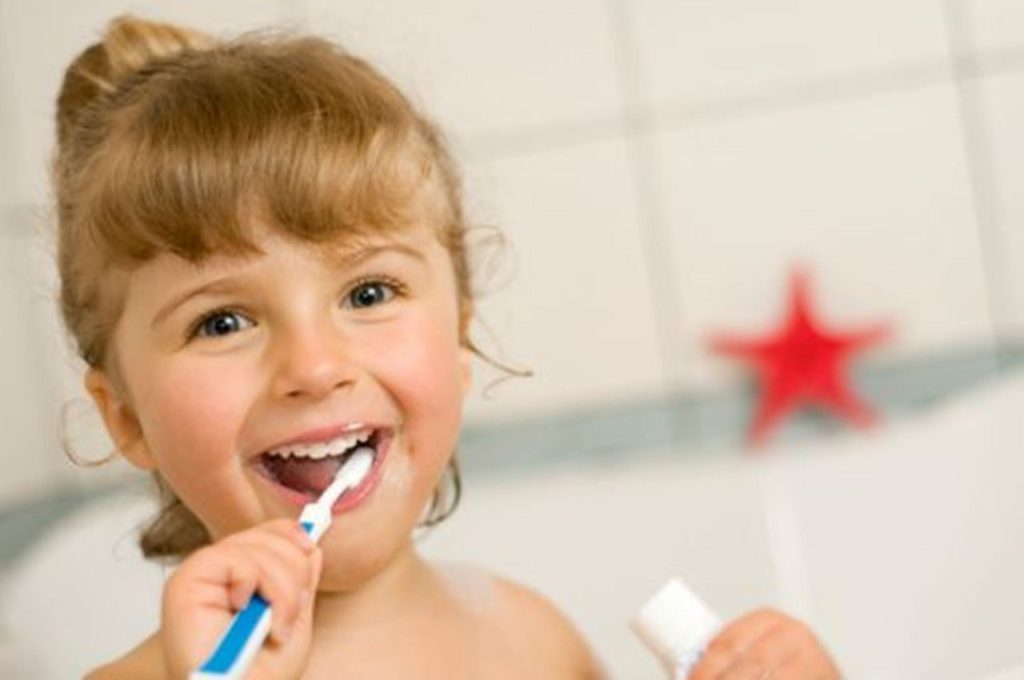
Nutrition during pregnancy is vital to your baby’s health, as well as your own. Prenatal vitamins try to fill in gaps. Pregnancy herbal tea is a better option for absorption. Many of the important organs and structures of the body are formed very early in pregnancy.
Your child’s teeth may not be on your mind when you first discover you are pregnant, but it should be.
Children’s teeth begin forming six weeks into pregnancy. These primary tooth buds are fully formed by the eighth week. During the beginning of the second trimester, hard tissue is formed that surrounds the teeth. At twenty weeks, the adult tooth buds are formed. [note]https://www.stanfordchildrens.org/en/topic/default?id=anatomy-and-development-of-the-mouth-and-teeth-90-P01872[/note] [note]https://www.dentalhealth.ie/dentalhealth/teeth/development.html[/note]
In a new double-blinded clinical trial, researchers have found that large doses of vitamin D prevented enamel defects and cavities in children. Neither the participants nor the researchers knew which pregnant women were taking the large dose or standard dose of vitamin D. Researchers followed up six years later to see the effect on children’s teeth from in utero vitamin D.
The New York Times explains the studies and the results:
Beginning in the 24th week of pregnancy, one group took two pills daily, one containing 400 units and the other 2,400 units of vitamin D. The other took a 400 unit pill plus an identical-looking placebo…
Six years later, the children were examined by dentists who did not know which mothers had taken the supplements. They found that children of women who took the vitamin D regimen had a 47 percent lower rate of enamel defects in both permanent and baby teeth than those in the control group.
At age 6, there was no association with cavities, “but you can’t have cavities without first having enamel defects. This is an extremely robust finding, and I have no doubt that it does not come by chance,” said the senior author, Dr. Hans Bisgaard, a professor of pediatrics at the University of Copenhagen.
Vitamin D During Pregnancy May Improve Dental Health of Babies
2800 units of vitamin D is well below the recommended amount of vitamin D intake advised by the Institute of Medicine of the National Academies which recommends pregnant and lactating women 400-600 IU/day. The committee recommends no more than 4000 IU/day.[note]http://www.nationalacademies.org/hmd/~/media/Files/Report%20Files/2010/Dietary-Reference-Intakes-for-Calcium-and-Vitamin-D/Vitamin%20D%20and%20Calcium%202010%20Report%20Brief.pdf[/note]
The study involved 623 pregnant women. It’s interesting that the high dose vitamin D supplementation occurred during the third trimester considering the teeth begin forming in the first.
Published in the Journal of the American Medical Association Pediatrics, the authors explain the significance of their findings:
Importance Enamel defects of developmental origin affect up to 38% of schoolchildren and
is recognized as a global public health challenge. The impaired enamel formation results in pain owing to hypersensitivity, posteruptive breakdowns, rapid caries progression, and extractions in some cases. The etiology is unknown; therefore, prevention is currently not possible.Conclusions and Relevance High-dose vitamin D supplementation during pregnancy was associated with approximately 50% reduced odds of enamel defects in the offspring. This suggests prenatal vitamin D supplementation as a preventive intervention for enamel defects, with a clinically important association with dental health.
Association of High-Dose Vitamin D Supplementation During Pregnancy With the Risk of Enamel Defects in Offspring
Just like any medical information you read about on the internet, it is important to consult your health care provider before increasing your vitamin D supplementation while pregnant. If you are taking a prenatal vitamin, check the amount there first before adding additional supplements. Don’t forget that many foods are also supplemented with vitamin D. Too much vitamin D can cause kidney and tissue damage
If vitamin D during the third trimester can protect children’s teeth, especially from early childhood caries, it should be recommended to all pregnant women. It is such a simple solution.
Leave a Reply